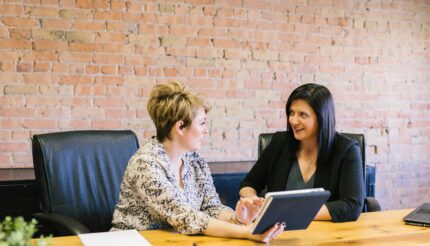I’ve sold my business, what is the best way to invest the proceeds?
The good news is, you have sold your business, or have some other funds available. You now want to invest the proceeds and spend more time enjoying life. In this guest blog post Mark Chapman from Cathedral Independent Financial Planning outlines some of the options available to you.
If you come into a life-changing sum of money, you will probably want to spend some and then invest the balance, but you need to consider your options carefully.
What are your options, how could you generate some income and also to try and protect the value against inflation in the long term?
Firstly, make sure the sale of any business is structured in the most tax efficient way for you.
A properly structured deal can save thousands in tax. This could include selling your business over a period of time, potentially more attractive to the purchaser as they minimise their outlay up front and also may enable you to use tax allowances over more than one fiscal year.
You should at this point consider maximum pension funding, as this could form part of any deal, this is not only tax efficient for you, also potentially for the purchaser.
Once a deal has been struck, get the clauses checked out legally, you want to make sure you will get the money you are owed without undue delay.
But then you can start to think of the future;
- Make a plan.
Think about how much income you need and when you will need it, complete a full budget plan.
- Pay off debts and possibly your mortgage.
You should certainly pay off short term debts such as Credit Cards, Overdrafts and Personal loans. These are likely to have interest rates payable, well in excess of anything you could ever earn in interest or investment returns.
Also consider any mortgage commitments. Whilst normally considerably cheaper than other forms of borrowing, they are still a drain on cashflow and the rates charged are always more than you can earn in interest, that is how banks make their money.
- Think about your children.
Do you need to put any money aside for say children’s education, or potentially property deposits?
- Most important, an Emergency Fund.
You need to make sure you have enough money to cover the emergencies that life brings, such as the boiler or car going wrong, unexpected bills, or just the unforeseen. A cash reserve can also then enable you to work the rest of your money harder, protecting it for the longer term.
- Use your tax-efficient allowances, pension contributions first and then you ISA allowances.
These types of investments are very tax efficient and normally you should always maximise both allowances, as you could qualify for valuable tax breaks in the case of pensions, whilst ISA plans provide both the potential for tax free growth and income.
- Investments Then look at setting up an investment portfolio, perhaps buying an investment property, to generate long term returns and consider getting good Independent Financial Advice
To do this you need to consider the level of investment risk you wish to take
There are risks in every investment you hold, from money in the bank, to property, to shares quoted on a Stock Market
What is investment risk?
Different types of investment products carry varying risks, so when you’re deciding what to invest in, you first have to consider what your risk appetite is like.
Everyone has a different risk tolerance and the same principle applies to investment risk. If there’s a secret to investing, it’s that you need to come to terms with the risks – and also the potential returns – involved.
Different types of investment risk
Here are a few basic types of risk you may encounter while investing:
The risk of bank and building society accounts. These typically offer very low levels of short-term investment risk. The Financial Services Compensation Scheme FSCS, will protect the first £85,000 of your savings with them and up to £1m may be protected for a six-month period if your bank or building society goes under.
This provision is to cover life events such as selling your residential home, inheritances, redundancy, and insurance or compensation pay-outs that could lead to you having a temporarily-high savings balance.
You know that the value of the money in a savings account today, will be the same tomorrow. However, in the long term, whilst inflation is greater than the interest rate you are earning, then in real term your money is going down in value
The shorter term investment risk of a share portfolio is far higher, as the value can go down as well as up. However, in the long term this type of investment has historically provided the greatest protection again inflation, and therefore could be argued is potentially lower risk in the long term.
When investing, you can’t have returns without risk. It’s often true that the lower the potential risk an investment carries, the lower its potential returns; and the higher the risk, the higher the possible returns. Finding a good balance between the highest possible return and lowest possible risk will depend on your risk tolerance and how long you can hold your investment for. But don’t forget the risks of inflation particularly to the long term investor.
We frequently get comments like; “I am now retiring and cannot afford to take risk.” Whilst someone retiring no longer has the ability to replace their savings and investments from earnt income, they also need to take into account life expectancy.
For someone retiring at 65, the typical life expectancy is age 90. Giving a 25-year period. If you have inflation at 3.5% and a savings rate of 0.5%, then in real terms over a 25-year period you have lost over 50% of the value of money held on deposit.
Once you know the level of risk tolerance, you can now, make decision on where the monies are to be invested and into what sort of products, typically the following investment should be considered, in tax efficient order.
- Emergency reserve, including products such as Premium Bonds
- Maximise Pension provision
- Maximise ISA allowances
- Collective / Share portfolio
- Investment Bonds
Other more specialist investments, such as Venture Capital Trusts (VCT) and Enterprise Investment Schemes (EIS) may be appropriate, but they carry a far higher level of investment risk and should only be considered with specialist financial advice.
Likewise, the use of Trusts should be considered particularly if your estate is likely to be subject to Inheritance tax.
However, all of these should be seen as a portfolio, each part will be aiming to achieve different objectives.
For virtually everyone you should have a good balance between where the money is invested, such as in the bank, a pension an ISA or Investment, likewise where those funds are placed. Such as in shares, property of just held on deposit
What else should I be thinking about?
Make a will. You should ensure you have an up to date will that stipulates where assets and property will go once you die. For information on business wills click here.
Consider Power of Attorney A lasting power of attorney (LPA) is a way of giving someone you trust, your attorney, the legal authority to make decisions on your behalf, if you lose the mental capacity to do so in the future, or if you no longer want to make decisions for yourself
Whilst this may seem daunting, good independent financial advice can help, and ultimately you can then be in a position to enjoy a much-earnt retirement/next stage of your life.
 Mark Chapman is a Founder and Managing Director of Cathedral Independent Financial Planning Ltd, a firm of Independent Financial Advisers with its base in Bedfordshire. He has over 35 years of experience in financial services and helping clients meet their financial goals. Cathedral Independent Financial Planning Ltd can assist with all your needs from protection to mortgages, investments and retirement planning. Mark’s focus is on the investment and retirement planning side of the business.
Mark Chapman is a Founder and Managing Director of Cathedral Independent Financial Planning Ltd, a firm of Independent Financial Advisers with its base in Bedfordshire. He has over 35 years of experience in financial services and helping clients meet their financial goals. Cathedral Independent Financial Planning Ltd can assist with all your needs from protection to mortgages, investments and retirement planning. Mark’s focus is on the investment and retirement planning side of the business.






